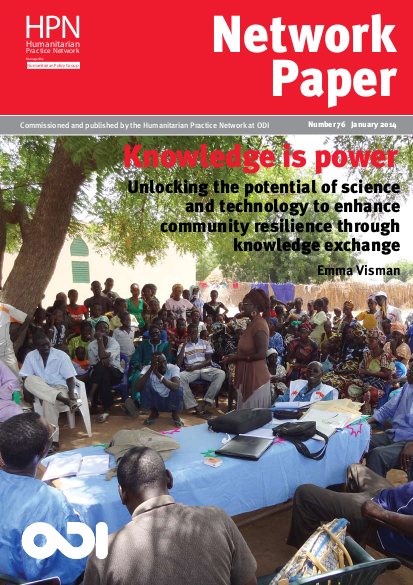
This Network Paper seeks to address this challenge by analysing how formal scientific learning can support decision-making processes amongst people at risk and those trying to support them. Drawing on a series of case studies across regions, disciplines and sectors, it identifies generic learning and key characteristics regarding those forms of knowledge exchange which have resulted in tangible benefits for at-risk people.